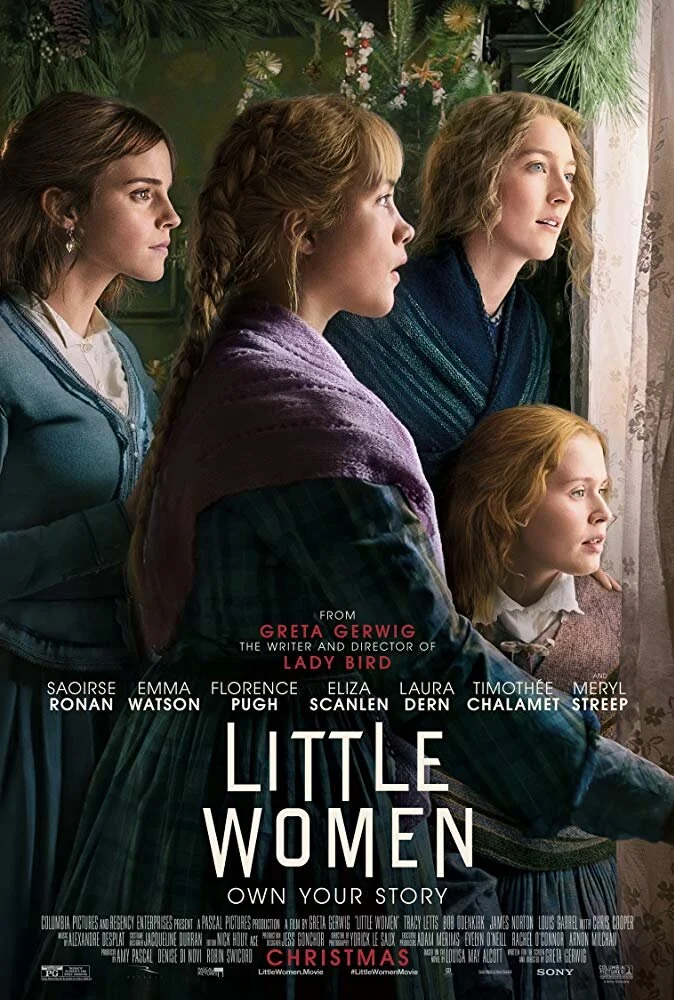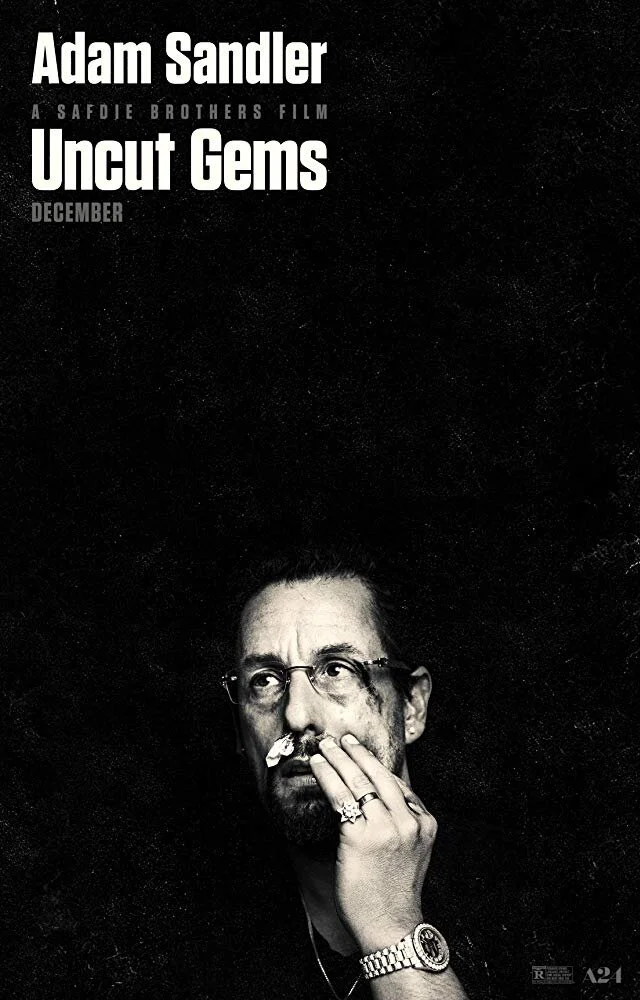'1917' is an impressive missed opportunity
Avoiding the usual trappings of emulating what Spielberg did for "Saving Private Ryan," Sam Mendez bucks with the popular trend of frantic pseudo-documentary film style in favor of a single shot movie resulting in an excited if not overly familiar picture. A film is both what you see and feel. Some flicks focus heavily on the visually metaphorical; others focus more on its writing. "1917" opts to focus on its optical spectrum but ditches much of its symbolism in favor of extravagant action sequences. The majority of critics have hailed this style of filmmaking as harrowing while the minority view it as gimmicky. I tend to lean in between arguing that the one-shot aesthetic does serve a purpose to a story that needed to be told this way. The caveat is how the approach brings too much attention to itself.
The entirety of "1917" relies on the plot of two British Lance Corporals, Schofield (George McKay) and Blake (Dean-Charles Chapman) They are assigned to deliver a letter to the 2nd Battalion of the Devonshire Regiment warning them of an incoming trap from the Germans that will cost the lives of 1,600 men. This is a journey film in its most defined way as the camera is meant to evoke the physical exhaustion that these men endured when given such a tumultuous task. Telling the story of someone getting from point A to point B wouldn't be as dynamic if the film consisted of a traditional method of filmmaking with the camera cutting as it usually would.
The more technology has evolved, fewer films about both great World Wars have focussed on the people in the movies. There's a reason why "Saving Private Ryan" is the most celebrated war movie of all time. Not only was its style revolutionary in the genre, but its narrative was equally profound. "Private Ryan" wasn't just showing the audience guys being blown into bits. It was showing men crying in agony for their mothers, making us feel their longing for a home that will never come return to. Its story has the same plot outline as "1917." Where "Ryan" succeeds "1917" fails at giving us the same tale that's missing its deep emotional resonance. Both films are about the journey to get to a particular place to deliver a message. With "Private Ryan," the letter was to tell Ryan to go home to his mother. In "1917," it's to inform the men to stay in their trenches. Both films are trying to save someone from dying when the casualties are far more significant than the heart can bear.
I draw this specific comparison since both films are inseparably similar. Subconsciously on Mendes' end "1917" felt like Sam was saying, "I'll make the same film but even better!" To put things in perspective, "Saving Private Ryan" came out in 1998 then infamously lost to "Shakespeare in Love" at the 1999 Academy Awards. The next year Sam Mendes made his debut winning big at the Oscars with "American Beauty" in both the Director and Best Picture categories. Maybe Mendez thought at the time, "I like this Oscar, but I bet I can make a war movie like last year's one day and top that one." Granted, this is all just rambling conspiracy theories, but it seems entirely plausible. In actuality, "1917" is an honorary letter to the Director's grandfather who served as infantrymen in the first World War. Yet why make the equivalent of an action movie to commemorate him?
Moving from one set piece to another "1917" is overtly occupied with topping itself in order to wow its audience as if they're on a theme park ride. The film's protagonist Schofield manages to survive being shot at, fall down a waterfall, and outrun a barrage of mortar fire all within the course of presumably twenty-four plus hours. Schofield's survival generates a comparison to videogames, which contextually is crudely unfair but does bring about the thought in my head that the film feels more like a virtual experience that an effective one. Am I supposed to be wowed by the setpieces that Mendes, DP Roger Deakins, and Production Designer Dennis Gassner have crafted or weeping when the movie reaches an emotional setpiece? With little emphasis on character development, I'm left hollow when key dramatic moments occur. The only thing I felt looking forward to was the next action sequence, which I think wasn't Mendes' aim.
With my repetitive begrudgements set aside, I am floored by the technicalities that were achieved here. To dismiss the unbelievable feats that the crew had accomplished would be foolish. Roger Deakins dwarfs his success from "Blade Runner 2049" with a film that must have been unimaginably difficult to work on. The setup between each shot takes about 2-4 hours if you're lucky on a usual set. For complicated sets such as this, the structure took presumably 18 hours before the cameras rolled. That's not also to take into account the months of preparation for each scene. Every actor must not only flawlessly hit their mark, but do so for an elongated period. Single-shot films have been made before only one of which (Russian Arc) was actually filmed in one continuous take with zero hidden cuts. What makes "1917" stand out is that it doesn't take place in one significant location but rather a multitude of epic landscapes. If the argument for digital over film were to be made "1917" would be the prime example for digital's superiority. There is no way that "1917" could have been shot on film. The cameras are too bulky; the magazine could become damaged, the light range would be far too limiting, and God forbid the shot didn't come out right during the development process. Without the use of a lightweight Arri Alexa Mini LF that shot at a resolution of 4.5K in all-natural light, this film would never have been made possible. The results are stunning, which is a guaranteed Oscar win for Deakins a second time around. There are sequences in the film that will be remembered for years to come thanks to not only the visuals but the masterful sound editing and Thomas Newman's sweeping score. It's a sight to behold on the most massive screen possible in the loudest theatre you can find.
It's a shame "1917" couldn't reach the emotional heights it aimed for since its singular take magistery could have rendered the movie a classic if given better writers. The technique is not consciously fashionable. It exists to make us feel the grueling task our heroes are trudging through miles of hell that was World War 1. The emotion behind that hell is lost when the movie is trying to one-up itself with lavish over the top set pieces reminiscent of a Michael Bay film. A vastly superior film about World War 1 that comes to mind recently is "They Shall Not Grow Old." A documentary made entirely out of 100-year-old World War 1 footage, and thousands of archival interviews provide a far greater context of the turmoil those soldiers felt. By the end of that film, I was left nearly in tears thinking about what those men had to endure, who were given nothing in return when coming home. Although marketed for its technical remastery of archaic rushes, "They Shall Not Grow Old" provided the subtext to provide its prowess with an emotional backbone. I'm profoundly disappointed that Medes and screenwriter Krysty Wilson-Cairns didn't step back from its action so we could get to know Schofield or Blake on a personal level. If they had, perhaps we'd receive a far more memorable picture.
*** out of ****


